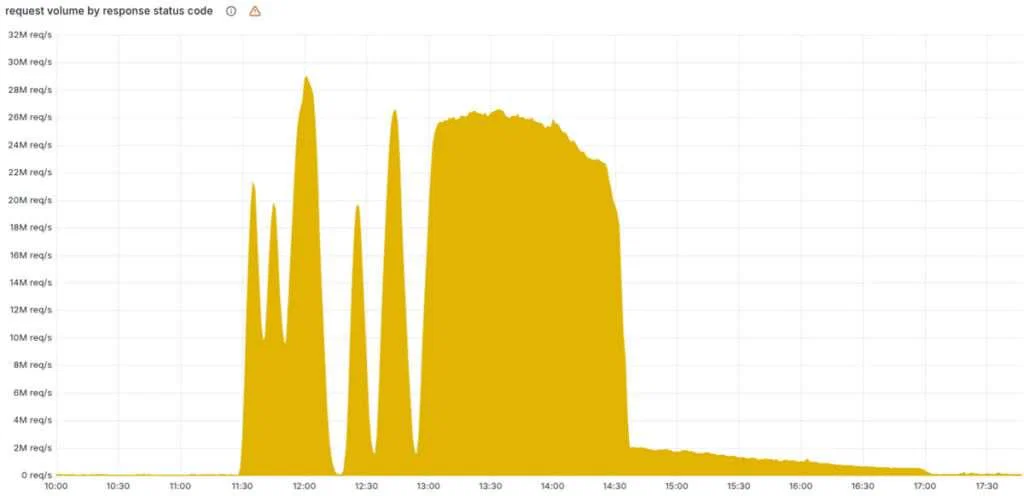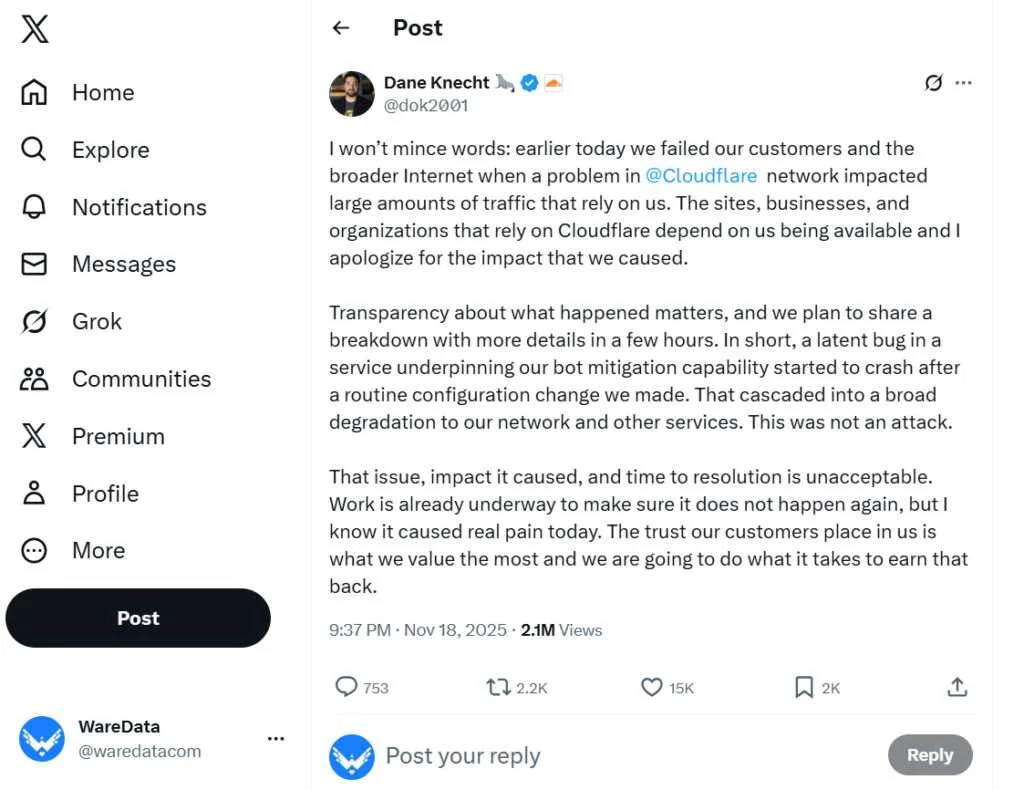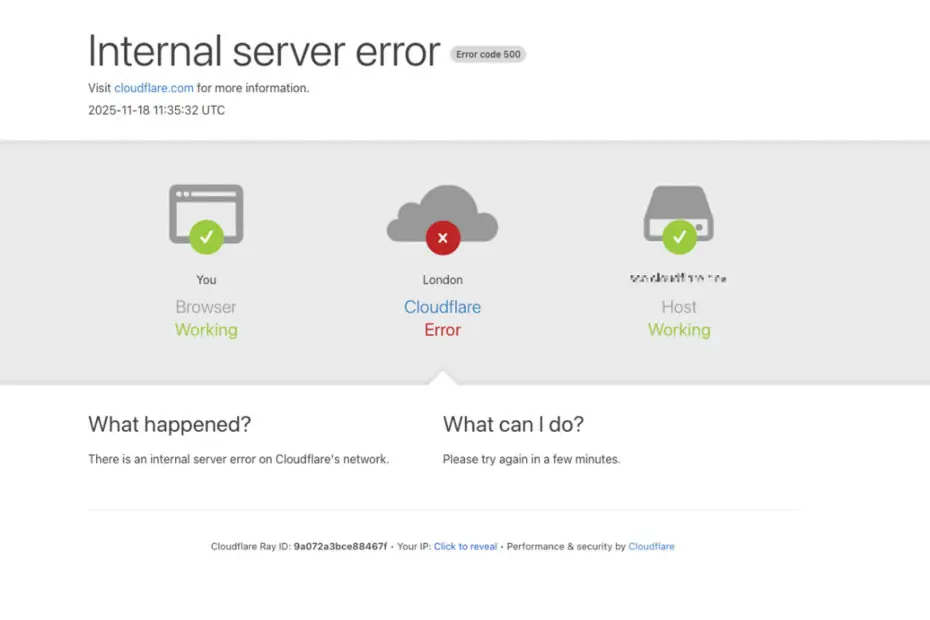On Tuesday morning, the internet briefly ground to a halt. A failure deep within Cloudflare’s infrastructure rippled outward, leaving millions unable to reach ChatGPT, X, Spotify, and more for nearly three hours.
The trouble started early in the morning on the East Coast. Cloudflare spotted what it called “unusual traffic” affecting its systems at 6:20 a.m. ET and went public about the problem roughly half an hour later, describing it as an internal service degradation.
The chart below tracks the volume of 5xx HTTP status codes returned across Cloudflare’s network. Under standard operating conditions, this metric stays low, and it did until the moment the outage began.

Service wasn’t fully restored until around 9:30 a.m. ET. Later, Cloudflare issued a technical explanation, tracing the outage to an auto-generated configuration file used to manage malicious traffic. The file grew larger than anticipated, causing the routing software that supports much of Cloudflare’s services to crash.
The company’s Chief Technology Officer, Dane Knecht, acknowledged the situation on social media, saying, “I won’t mince words: earlier today we failed our customers and the broader Internet when a problem in @Cloudflare network impacted large amounts of traffic that rely on us.”

Cloudflare’s internal review found no indication that the outage was caused by an attack or other malicious behavior. The company released a detailed post on its blog and noted that, given the importance of its services, any outage is unacceptable, and steps will be taken to improve.
For many users, the outage was inconsistent. Business Insider reported that some affected sites briefly came back online before failing again. By late morning, services such as X, ChatGPT, and even Downdetector, which was also disrupted, were functioning normally.
The outage continues a trend of disruptions that expose the internet’s heavy dependence on a limited set of core infrastructure providers. It comes on the heels of a major AWS failure last month and a widespread June incident impacting Google Cloud and Amazon’s Twitch service.
Analysts view these repeated issues as a sign that the system is coming under growing strain.
“We’re seeing outages occur more often, and they’re taking longer to resolve,” said Jacob Bourne, an analyst at EMARKETER, to Business Insider. “That points to stressed infrastructure, with rising AI workloads, growing streaming demand, and aging systems all pushing the limits.”
Cloudflare handles security and speeds up traffic for millions of sites, so when it runs into trouble, a huge chunk of the internet feels it. It’s a sharp reminder that, even though the web seems decentralized, a lot of it still leans on just a few major players.
Maybe you would like other interesting articles?

